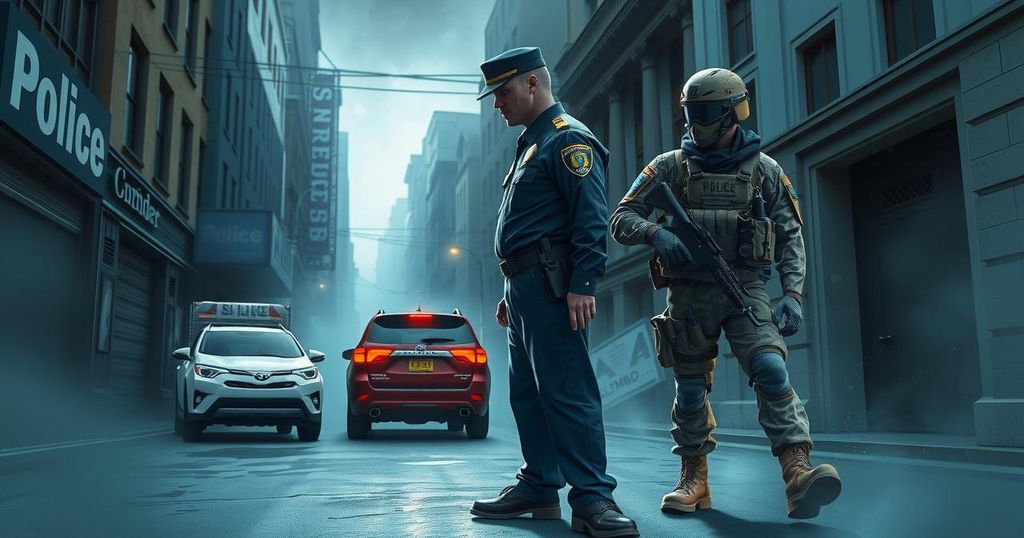Murder of Radio Maria/Goma Coordinator Highlights Perilous Climate for Journalists in North Kivu
Edmond Bahati Monja, the coordinator of Radio Maria/Goma, was murdered on September 27 by armed assailants near his home in Goma’s Ndosho district. His killing illustrates the perilous conditions for journalists in North Kivu, as violence from the M23 armed group escalates. The Congolese army’s collaboration with various militia has aggravated insecurity, with journalists facing persistent threats. Bahati was known for his investigative work on armed group violence and is mourned by his family and colleagues.
The tragic murder of Edmond Bahati Monja, the coordinator of Radio Maria/Goma, took place on the evening of September 27 when he was shot near his residence in the Ndosho district outside Goma, a city besieged by the M23 armed movement. The incident underscores the perilous environment faced by journalists in the eastern Democratic Republic of Congo, where a rising tide of violence leads to a grim reality for those dedicated to reporting the truth. The M23 militia has effectively encircled Goma, compelling the Congolese army to forge alliances with various armed groups, including some that self-identify as Wazalendo, or “Patriots”. This partnership, intended to bolster the city’s defenses, has paradoxically heightened the overall climate of insecurity, leading to frequent incidents of violent crime, including robberies and homicides. Bahati was known for his investigative journalism, particularly regarding the abuses inflicted by armed groups in the region. Eyewitness accounts indicate that he was pursued and then shot at close range after being robbed by three armed men, potentially dressed in military attire or civilian clothing; discrepancies among witnesses exist. He was struck by at least two bullets to the chest and leaves behind a grieving family, including a wife and three children. A colleague memorialized him, stating, “Edmond was a man of peace who put himself at the service of the community and the Church. His death is a great loss.” The hostile conditions for journalism in Goma are exacerbated by ongoing threats directed at reporters, often conveyed through phone calls or text messages. Community radio stations like Radio Maria/Goma play a crucial role in delivering information in conflict zones, serving as a vital outlet for denouncing violence against the civilian population. Despite the implementation of a state of siege in May 2021, the violence remains rampant. Compounding the instability, the Congolese army’s reliance on irregular armed groups has further eroded the sense of security in North Kivu. Cardinal Fridolin Ambongo Besungu, the Metropolitan Archbishop of Kinshasa, remarked on the issue, emphasizing, “These armed groups will eventually become a danger to the population by looting citizens, committing robberies and murders, and engaging in the illegal trade of minerals extracted from the artisanal mines in the region.” This heinous act against Edmond Bahati is a stark reminder of the dangerous environment for journalists in the Democratic Republic of Congo, highlighting the broader issues of insecurity and violence that have gripped the region, particularly in North Kivu.
The eastern province of North Kivu in the Democratic Republic of Congo has long been scoured by violence from various armed groups, notably the M23 militia, which has attained significant control over regions surrounding the city of Goma. The situation has deteriorated over the last few years, leading to increased tensions and frequent hostilities that not only threaten the safety of civilians but also endanger those who strive to uphold press freedoms. Journalists in Goma face a constant risk of violence as they report on the unfolding humanitarian crisis, leading to an alarming increase in the number of attacks against media personnel. The killing of Edmond Bahati Monja is indicative of a broader trend where reporting the truth about the atrocities committed by armed groups can result in fatal consequences for journalists. Additionally, the involvement of the Congolese army with unsanctioned militias has only intensified the chaos, creating a hostile environment for both citizens and journalists alike.
In conclusion, the murder of Edmond Bahati Monja epitomizes the dire circumstances under which journalists operate in the Democratic Republic of Congo, particularly in North Kivu. Their pursuit of truth is met with severe threats and violence, as evidenced by the increasing frequency of attacks against media personnel. The ongoing turmoil in the region, exacerbated by alliances between the government and various armed groups, has contributed to a climate of insecurity that poses a significant threat to the safety of civilians and journalists alike. The plight of individuals like Bahati calls for urgent attention to safeguarding the rights of reporters in conflict zones, as they serve as crucial observers and communicators of the harsh realities faced by affected populations.
Original Source: www.fides.org




Post Comment